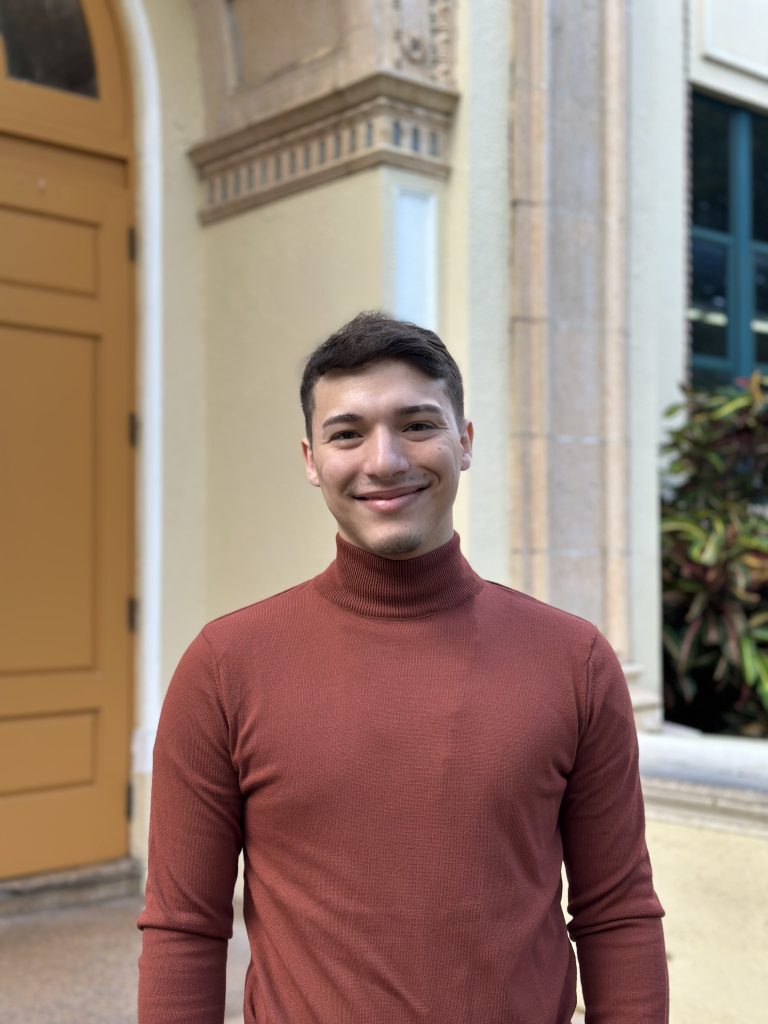Short Bio
My name is Diego Villafañe Ortiz and I’m from Isabela, Puerto Rico. I graduated from the University of Puerto Rico, Aguadilla Campus with a bachelor’s degree in biomedical science. I’m working with Dr. José García Arrarás under the Research and Mentoring for a Postbaccalaureate in Biological Sciences (RaMP-UP) postbaccalaureate program. The project I’m working on tries to understand the potential role of the immune system in the modulation of the regeneration process of the sea cucumber H. glaberrima. After RaMP-UP, I plan to pursue graduate studies in Immunology or Regenerative Medicine to understand the human body’s immune reactions, its intricate defense mechanisms, and its untapped potential for regeneration.
A fun fact or hobby: My favorite hobbies are crocheting and baking sweets, especially cookies.
Research
Mentor:
José E. García-Arrarás, PhD
Co-mentor:
Humberto Ortiz-Zuazaga, PhD
Project Title:
Characterization of Immune Cell Type Populations in Coelomic Fluid and Tissue from Holothuria glaberrima
Project Description:
In holothurians, it has been inferred that coelomocytes, a heterogeneous population of free-circulating immune-associated cells, likely play an important role in the regeneration of organs. A single-cell RNA Sequencing of a 9-day regenerating intestine of the sea cucumber Holothuria glaberrima distinguished thirteen clusters each with distinct expression profiles. Four clusters showed a high expression of genes related to the immune system suggesting that these cells are coelomocytes. Representative genes for each cluster were selected based on their expression profile, defining populations that expressed Fibrinogen-like protein A (FIBA), Insulin-like growth factor-binding protein complex acid labile subunit (ALS), SCO-spondin (SSPO), or Balbiani ring protein 3 (Brp-3). An In Situ (HCR-FISH) was performed on coelomic fluid and tissue samples collected atvarious regeneration stages to identify these clusters and verify their influence on the regeneration process.

